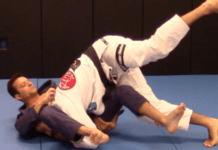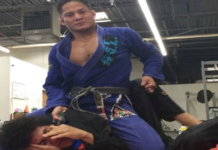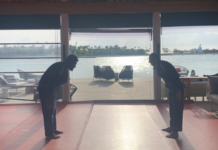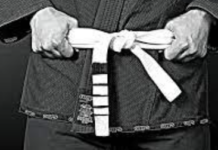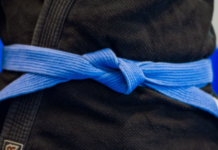Table of Contents
BJJ is a sport and a martial art that could do wonders for your body. After a while of training, you will start experiencing some of the many benefits. Your entire body will grow stronger. You will lose excess weight and start packing on muscle. You will also dramatically improve your cardiovascular endurance. BJJ can be one of the most physically demanding sports and martial arts in existence. However, not everything is rosy in the world of BJJ. It can be a highly chaotic sport – no matter what the degree of your skills. Many people have gotten injured by training BJJ – and one of the most frequent injuries is that of the knees. Below you will find out some more information about BJJ knee injuries.
Dangerous moves in BJJ
A great thing about BJJ is that you can all but use your full strength while rolling. This is simply not possible for sparring in other martial arts – imagine what would happen if two Muay Thai practitioners went at it full-power in sparring. However, the risk of injury is still there if the BJJ practitioners aren’t careful. In fact, it’s still there even if the practitioners are careful. There is a list of moves that are known to be less knee-friendly, in the BJJ arsenal.
Heel Hook
The most notorious of these moves is the heel hook. This is a move that has been banned in many international BJJ organizations due to the fact that it’s dangerous. If you complete a heel hook – then your opponent’s leg will get broken in several places in a brutal way. And one of the parts of the leg that will suffer is the knee. Ligaments may get torn very easily. This is a big reason for you to be extra careful with this move.
Knee Bar
Then there’s the knee bar. Typically, people need to be extra resilient with this move to do some serious damage – though this isn’t always the case. If you finish the kneebar, then your opponent’s knee may just snap. The way the kneebar works is by overextending your opponent’s leg at the knee. It’s easy to imagine how things may go terribly wrong for your opponent. This is why it’s very important for the two of you to be very careful with this move.
The rubber guard
The rubber guard can put a tremendous strain on the knees of the person who does it. If you know your jiu-jitsu, then you know that in order to do the rubber guard, you will need to grab your shin over the opponent’s back while he’s in your guard. This can overstretch the knee and cause serious injury. This is why Eddie Bravo recommends that you don’t even try the rubber guard unless you have serious flexibility in your knees and hips. Being able to do the full lotus is a pre-requisite for doing this guard in order to have a low risk for knee injuries.
There are a handful of other BJJ moves that can be risky for your knees. It’s important to be very careful when doing some of these moves in order to protect your knees.
Frequent types of knee injuries in BJJ
Anterior cruciate ligament (ACL) sprain or tear
The knee is an intricate joint that’s heavily used in day-to-day life – and especially in competitive sports like BJJ. Some of the supporting structures may fail. The first frequent kind of BJJ knee injury is the anterior cruciate ligament (ACL) sprain or tear. This is the ligament that prevents overextension of the knee. As logic would have it – this ligament can be torn by overdoing a move like a kneebar which is specifically designed to put this tremendous strain on the knee. ACL tears are no joke and they may render your knees unstable. However, the good news is that you can do surgery and have new ACLs that will feel pretty much like your old ones.
Mediate Collateral Ligaments ( MCL)
At the side of the knee – there are the mediate collateral ligaments. These ligaments connect and hold the leg and thigh together. These ligaments are frequently damaged by doing twisting, rotating motions with your knees. You may experience pain, swelling, and instability of your knees after an injury of this kind. Luckily, many MCL injuries heal on their own with time and require no surgical intervention. You just need to rest.
Meniscus Tears
Finally, there are the meniscus tears. The meniscus act like shock absorbers in the knees. They too can get damaged with improper moving patterns and sudden explosive movements. A meniscus tear may make your knee painful and swollen. Also, you may feel weakness and a sensation that your knee may “give way”. You may experience sporadic knee lockups as well. In all cases, if you have any knee injuries, you should stop reading this article and go and see a doctor immediately.
Increasing your knee health for BJJ
There are several important things that you could do in order to protect the health of your knees and prevent injuries. The first thing to do is – strengthen your knees. Many people fail to understand that your BJJ practice needs to be supplemented with strength training. They think that BJJ offers everything you need in terms of strength training. The appallingly high number of knee injuries prove otherwise. So, make sure that you do exercises that strengthen your knees. You could do running, bodyweight squats, weighted squats and anything that activates and strengthens your knee joints and the surrounding musculature.
Many people aren’t aware of this – but the hips play a big role in knee health. The most important thing to do is to improve the flexibility of your hips. The hips are made to move in many different directions. The knees are only made to bend and extend. If your hips are rigid and non-mobile, then your knees will take the brunt of the work. And this won’t bode well for their health. So, try and do some exercises for your hip mobility. It may not seem like it – but it will do wonders for not only your knee health – but also your lower back health as well.
Bjj knee injuries possibility for every practitioner
BJJ is a phenomenal sport and martial art that can change your life for the better in many different ways. However, it’s not without its risks. The knees are some of the most vulnerable parts of your body while you train BJJ. Note that this article is only meant to inform you on the subject – this is not a doctor’s advice. If you suspect anything’s wrong with your knees due to BJJ practice or otherwise – make sure that you see a doctor and follow their advice. If you’re careful and if you strengthen your knees – then the chances will be low that you will ever get your knees injured.
Check also:




